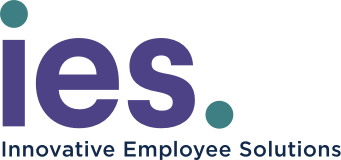A great museum carefully controls what’s seen and what’s not. Try viewing stunning sculptures in flickering light. Imagine admiring the beautiful brush strokes of a Monet only to hear a tour guide wrongly call it a Manet.
World-class staffing companies work the same way. Sure, they may be working through challenges with their employer of record, but they don’t let those kinks show through to their clients.
Other staffing firms, though, don’t have such strong relationships with their EOR. Like a Jackson Pollock that’s installed upside down, those issues might not be obvious at first. But sooner or later, they’ll cut into the quality of service that the staffing firm provides to its clients.
Staffing-EOR Matrimony Matters
To better understand how poor collaboration between your staffing firm and its EOR could affect your company, consider the case of one of our staffing partners. We were responsible for its workers’ compensation claims, but the firm forgot to tell us about employee injuries. Because we didn’t know about the injuries, we couldn’t help care for the affected workers.
After multiple incidents, we reiterated the importance of clear communication; still, they kept happening. So we offered to provide safety inspections and trainings to prevent future injuries. The staffing agency refused help, worried about its client relationship. Fed up, we ended our contract. Sadly, things just weren’t working out.
Only by working closely with their EOR can staffing agencies serve clients and contingent workers well. When employees are paid accurately and on time, they’re more productive. Plus, the more streamlined onboarding processes like drug screens and background checks are, the sooner temp workers can start the job.
Of course, collaboration is a two-way street. EORs can’t be afraid to tell staffing agencies that one-day trainings are insufficient — even though they comprise 23 percent of onboarding training plans. Staffing agencies also can’t wait to discuss their workers’ needs. For instance, 41 percent of employees say that they don’t get enough information about their benefits packages. A staffing firm should let their EOR know promptly if workers are complaining about confusing benefits.
Spotting a Sour Relationship
So how can you tell when your staffing firm and its EOR aren’t playing nicely? Look for one or more of the following red flags:
1. Temporary workers aren’t getting their paychecks as expected.
Everyone should get paid according to contractual arrangements. What if your staffing firm changes its payroll cycle from biweekly to weekly and forgets to tell its EOR? Employees won’t have money in their banks for bills, leading to frustration, lowered productivity, and possibly resignations.
Why lose a great temp worker over an avoidable problem? At the first mention of a payroll problem, talk to the staffing firm. Make sure it understands that solving the situation with the EOR is its responsibility. At IES, we’ve gone the extra mile to deposit checks in workers’ bank accounts when they’ve been deployed or unable to get to the bank. This above-and-beyond approach to business has snagged us a Net Promoter Score of 55 — on par with some of the world’s leading customer service organizations.
2. You notice discrepancies in your staffing agency’s invoices.
If information passed from you to the staffing agency isn’t getting to the EOR, you could see problems with anything from wages to statutory costs to staffing fees and sales tax. If your accountants aren’t already pushing you to do so, bring this up with your staffing provider pronto.
From our standpoint, the smartest way to avoid miscalculations while still offering customized solutions is to use an integrated timekeeping system. The staffing agency or EOR should provide the system, providing all parties with a ground-level view of billable hours and other expenses. Not only should this eliminate most invoicing issues, but it can also increase trust through greater transparency.
3. Labor laws have changed, but your temporary workers aren’t complying.
In most arrangements, it’s up to the EOR to tell your staffing agency about legal changes that affect temporary workers. A few years ago, for example, the California Supreme Court ruled that California employees must be compensated for missed meal breaks. If the staffing agency fails to pass that sort of information along to employees, you could pay dearly.
Compliance should be a non-issue for staffing firms working with ethical EORs like ours. We even provide alerts and newsletters to inform staffing partners of changing laws or other compliance challenges.
4. Your staffing firm and its EOR struggle to comply with co-employment laws.
Complying with certain labor laws takes close cooperation between your staffing firm and its EOR. Family and Medical Leave Act requests, safety trainings, discrimination complaints, Fair Labor Standards Act compliance, and more all require joint action. If your staffing agency and its partner EOR can’t stay on top of legal requirements, your company could face lawsuits around any of those issues.
One way we do our part with co-employment laws is by gauging the safety focus of clients and providing safety inspectors as needed. In one instance, we discovered that a Texas staffing firm allowed a worker to work without even completing an application. Because it refused to comply with the law, we took the issue to the agency’s corporate attorney.
You hired your staffing partner because you didn’t want to worry about things like payroll processing, onboarding, and compliance. But you may not have realized that the staffing agency was outsourcing some of those tasks itself.
So if your client experience is fraying at the seams, ask yourself: Is it you, or is something else going on? Because when it comes to staffing firms, what happens behind the scenes matters more than you think.
Peter Limone is the president and CFO of Innovative Employee Solutions, a leading nationwide employer of record that specializes in human relations and payroll services. Founded in 1974 in San Diego, IES has grown into one of the city’s largest women-owned businesses and been named one of its “Best Places to Work” for 10 years in a row.
Peter joined IES in 2011 as the company’s corporate controller. He was promoted to CFO the following year, and in 2013, he was also named company president. Prior to his work at IES, Peter worked for 3E Company, where he oversaw integration of the company’s accounting, financial, and tax systems. He has also served as division vice president of finance and information systems at Follett Software Company.






